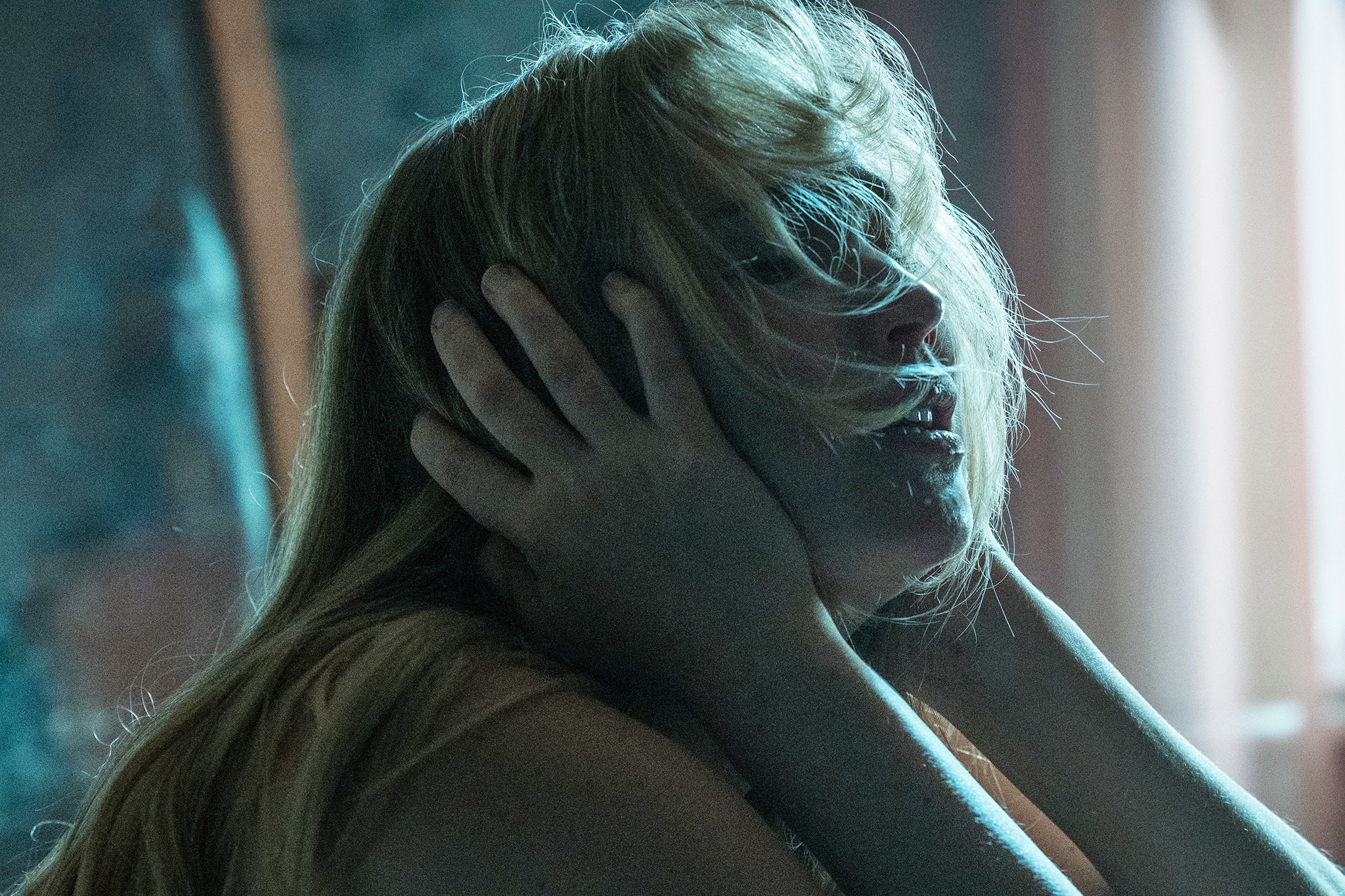Madness feels itchy. In Die My Love, we hear it in the constant ho-hum buzz of the flies, their dirty, spindly limbs always threatening to brush against vulnerable skin. We see it in the abandoned house carpeted in dry, brittle leaves and the clashing patterns of chintzy floral wallpaper. We sense it in the breast milk dripped carelessly from a nipple into a puddle of ink, looked down upon by a creator on two fronts, mother and writer – but signifying nothing but the universe sapped of its significance.
When the woman consumed by madness in Lynne Ramsay’s abrasively beautiful Die My Love is played by Jennifer Lawrence, words become unnecessary. Her character, Grace, has recently relocated from New York to live in a house once occupied by the dead uncle of her husband Jackson (Robert Pattinson), in order to raise their newborn son. The uncle shot himself there. You can sense his ghost pounding on the walls.
Grace never really talks about her emotions in this, Ramsay’s adaptation of an equally internalised 2012 novel by Ariana Harwicz. No one discusses a diagnosis, a treatment plan, or any deep-rooted causes, experiential or genetic, although postpartum depression and possibly psychosis seem likely. There’s no grand confession of the abyss inside.
That’s why Lawrence is here. She’s a master at simultaneously playing the truth and the performance in front of it, and this is some of her very best work in that realm. Grace’s misery is buried so deep that we, the audience, can feel its waves beating at the door, and yet it’s easy to believe, too, how everyone around her can be so blind to it.
She doesn’t say “help”. Instead, she walks away from Jackson’s telescope with a shrug. “Am I boring you?” he asks (Pattinson, here, is a brilliant counterbalance, loving but ill-equipped). “Not you – the universe, who gives a s***?”, she barks back.
Ramsay, over the course of her career, has always been drawn to these kinds of people, those who live entirely within themselves, from Joaquin Phoenix’s PTSD-afflicted vet in You Were Never Really Here (2017) to Samantha Morton’s grief-stricken young woman in Morvern Callar (2002). She knows the evasive, defensive moves, the bitter kind of joke Grace delivers when a too-perky cashier tries to make small talk (her rebuttal: “why are you talking?”).

The director wants us to understand it, too. And so, bound within the cramped, 4:3 aspect ratio, we’ve got nowhere to run to, only Lawrence’s vacant, soul-dry eyes and a world beyond that grows, beat by beat, more repulsive. Rock music grates. A yapping mutt becomes torture (and Ramsay has truly conjured up one of the most unlikable canines in history). There’s love in all the faces around Grace – her husband, her mother-in-law (an earnest Sissy Spacek), her ailing father-in-law (Nick Nolte) – but it refuses to reach its destination.
Die My Love captures most meaningfully the feeling of spiralling mental distress as like a dam that’s about to burst with no river to carry its water. What everyone around her interprets as erratic behaviour, for us, already inside her head, looks clearly like increasingly desperate attempts to find an outlet. She looks to sex, to compulsive masturbation, or the other lost soul she dreams up as a lover (LaKeith Stanfield, whose ethereal quality helps us to question how many of his interactions with Grace are real or imagined).
Then, she looks to self-harm, the promise of total self-obliteration. Where Ramsay leads us isn’t hopeful and isn’t happy. But it’s a fearsome, all-consuming spell of a film, and its effects are unshakeable.
Dir: Lynne Ramsay. Starring: Jennifer Lawrence, Robert Pattinson, LaKeith Stanfield, Nick Nolte, Sissy Spacek. Cert 15, 118 mins.
‘Die My Love’ is in cinemas from 7 November







